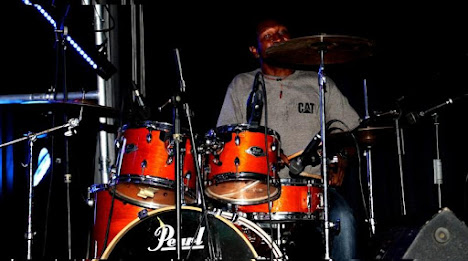Introduction:
Papua New Guinea is a country located in the Pacific ocean, famous for its diverse culture and tradition. The country has a vibrant music industry admired globally, but the artists here face several challenges that hinder the growth of the industry. In this blog, we will discuss the state of the Papua New Guinea music industry and the issues that need solutions.
Outline:
1. The Current State of the Papua New Guinea Music Industry
2. How Government Regulation Can Help Artists Make More Earnings
3. Copy Right Issues in the Papua New Guinea Music Industry
4. Laws and Amendment to Boost Music Industry Development
The Current State of the Papua New Guinea Music Industry:
The Papua New Guinea music industry has grown over the years, but due to economic and social factors, it has been on the decline lately. One significant challenge faced by the artists here is the lack of proper infrastructure needed to build their careers. Many artists lack access to equipment, resources, and platforms to showcase their talent.
How Government Regulation Can Help Artists Make More Earnings:
The government plays a crucial role in regulating and supporting the music industry. The regulation of copyrights for musical compositions and sound recordings is necessary to protect the interests of the artists. In Papua New Guinea, the government can set up a regulatory authority that understands the unique challenges of the industry and can offer solutions accordingly.
Moreover, the government can collaborate with private firms to set up music schools and production houses to support musicians' careers. Through these schools, artists can learn skills like music production, marketing, and promotion, enabling them to build a strong online presence and earn through their music.
Copy Right Issues in the Papua New Guinea Music Industry:
The Papua New Guinea music industry is plagued by Copyright issues that undermine artist's interests. For instance, many local bars and nightclubs earn by playing music without paying royalties to the artists. The government can set up a system to ensure that these clubs and bars must pay a fair amount to the artists whose music they are playing. This fair compensation can motivate new artists and contribute to the growth of the industry.
Laws and Amendment to Boost Music Industry Development:
The laws governing the music industry in Papua New Guinea need to be updated and amended to account for the industry's unique challenges. One major issue pertains to the lack of formal legal contracts between artists and record labels. This gap often leads to exploitation of artists, who end up receiving less profit than they should. By having updated laws regulating these contracts, artists can expect to be fairly compensated and protected against mismanagement.
Conclusion:
The Papua New Guinea music industry is full of potential and talent. However, to grow and prosper, the government needs to first take necessary actions to ensure that the artists are protected, supported, and provided with equal opportunities. By implementing regulatory authorities, education programs, fair compensation, and updated laws and amendments, the music industry in Papua New Guinea can flourish and reach its true potential.
Sources
"Papua New Guinea Music" by Culture Trip: https://theculturetrip.com/pacific/papua-new-guinea/articles/papua-new-guinea-music-the-sounds-of-a-culture/
"The State of the Papua New Guinea Music Industry" by The National: https://www.thenational.com.pg/state-png-music-industry/
"Papua New Guinea Music Industry and Copyright" by PacLII: https://www.paclii.org/journals/fJSPL/vol11no1/5.shtml
"Papua New Guinea music industry calls for law change" by Radio New Zealand: https://www.rnz.co.nz/international/pacific-news/321858/papua-new-guinea-music-industry-calls-for-law-change
"Papua New Guinea music industry calls for copyright protection" by ABC News: https://www.abc.net.au/news/2016-08-08/png-music-industry-calls-for-copyright-protection/7698354

Comments
Post a Comment